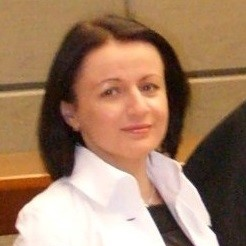Directions and Mechanisms to Support the Development and Popularization of Renewable Energy Sources
A special issue of Energies (ISSN 1996-1073). This special issue belongs to the section "C: Energy Economics and Policy".
Deadline for manuscript submissions: closed (13 August 2021) | Viewed by 23419
Special Issue Editors
Interests: spatial and environmental framework for RES developmentl operation and reliability of RES systems; sustainable development; economic efficiency of innovative projects, management
Special Issues, Collections and Topics in MDPI journals
Interests: optimization of the biogas production process from waste biomass mixed with agricultural biomass; the bidder’s development for fertilizer and energy purposes; biogas production from the organic fraction of municipal waste
Special Issues, Collections and Topics in MDPI journals
Interests: education, political and legal framework for the public funding of innovative RES projects; technological cooperation; innovation partnerships; technology transfer; sustainable development; economic efficiency of innovative projects
Special Issues, Collections and Topics in MDPI journals
Special Issue Information
Dear Colleagues,
As the Guest Editor, I kindly invite you to submit your papers to be published in a Special Edition of Energies, "Directions and Mechanisms to Support the Development and Popularization of Renewable Energy Sources".
Renewable energy systems (RES) are a pro-environmental response to meet the growing current energy demands, both global and prosumer. Renewable energy is seen as a way to reduce the consumption of conventional, fossil-based energy resources, while ensuring environmental protection. Renewable energy sources are also seen as an investment in future social development from an economic point of view.
Therefore, this Special Edition of Energies aims to support the implementation of RES by increasing the scientific and interdisciplinary knowledge of innovative supporting mechanisms for the development of RES. Currently, determining the directions and trends of the development of RES seems to be the strategic direction of research, both from the technological and developmental point of view. It is also important to observe social attitudes towards RES, as the sustainable development of natural and social environment is important in the research on RES.
We would appreciate your papers on innovative technical and technological solutions for RES, case studies as well as research of related fields that are important for the development of RES and fit into the sustainable development of the energy sector. Topics that will be included in the publication can include, for example:
- Political and legal framework for RES;
- Support mechanisms and instruments for RES;
- RES markets;
- Economic aspects of implementing RES;
- Spatial and environmental framework for RES development;
- Operation and reliability of RES systems;
- Innovative, next-generation RES technologies;
- Technical aspects of RES production;
- Environmental impact of RES investments;
- Integration of RES with current and future energy systems.
Prof. Dr. Anna Szeląg-Sikora
Prof. Dr. hab. inż. Jakub Sikora
Dr. Zofia Gródek-Szostak
Guest Editors
Manuscript Submission Information
Manuscripts should be submitted online at www.mdpi.com by registering and logging in to this website. Once you are registered, click here to go to the submission form. Manuscripts can be submitted until the deadline. All submissions that pass pre-check are peer-reviewed. Accepted papers will be published continuously in the journal (as soon as accepted) and will be listed together on the special issue website. Research articles, review articles as well as short communications are invited. For planned papers, a title and short abstract (about 100 words) can be sent to the Editorial Office for announcement on this website.
Submitted manuscripts should not have been published previously, nor be under consideration for publication elsewhere (except conference proceedings papers). All manuscripts are thoroughly refereed through a single-blind peer-review process. A guide for authors and other relevant information for submission of manuscripts is available on the Instructions for Authors page. Energies is an international peer-reviewed open access semimonthly journal published by MDPI.
Please visit the Instructions for Authors page before submitting a manuscript. The Article Processing Charge (APC) for publication in this open access journal is 2600 CHF (Swiss Francs). Submitted papers should be well formatted and use good English. Authors may use MDPI's English editing service prior to publication or during author revisions.
Keywords
- Renewable energy systems
- Political and legal framework for RES
- Innovative, next-generation RES technologies
- Support mechanisms and instruments for RES
- Environmental impact of RES investments
Benefits of Publishing in a Special Issue
- Ease of navigation: Grouping papers by topic helps scholars navigate broad scope journals more efficiently.
- Greater discoverability: Special Issues support the reach and impact of scientific research. Articles in Special Issues are more discoverable and cited more frequently.
- Expansion of research network: Special Issues facilitate connections among authors, fostering scientific collaborations.
- External promotion: Articles in Special Issues are often promoted through the journal's social media, increasing their visibility.
- e-Book format: Special Issues with more than 10 articles can be published as dedicated e-books, ensuring wide and rapid dissemination.
Further information on MDPI's Special Issue polices can be found here.







